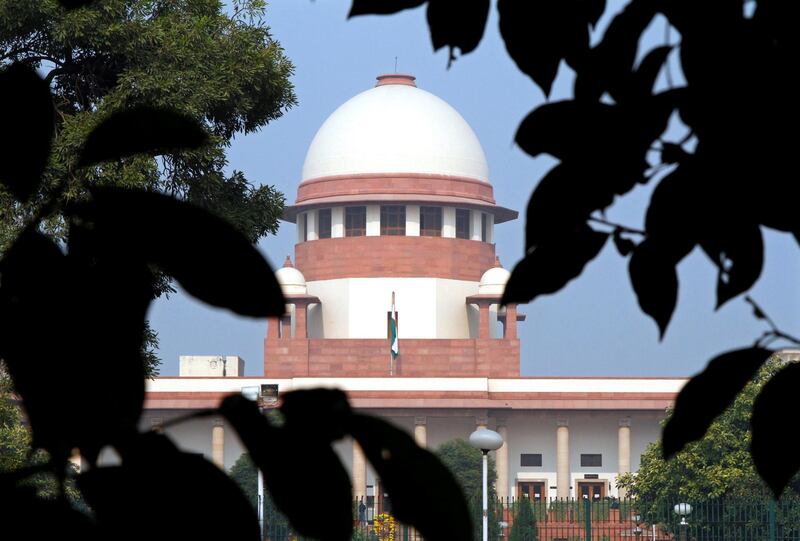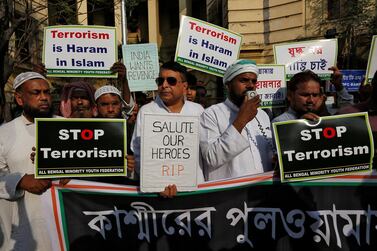India's top court on Friday ordered the central government and state authorities to stop threats, assaults and social boycotts of thousands of Kashmiri students, traders and professionals in an apparent retaliation for the killing of 40 paramilitary soldiers in a suicide attack in the Indian portion of Kashmir last week.
The Supreme Court acted on a petition filed by lawyers Colin Gonsalves and Tariq Adeeb saying that Kashmiri students had to lock themselves up in several cities and towns to escape mob violence after the February 14 attack.
Junaid Hussain, who will be completing his graduation in information technology in a few months, said he was harassed and told by hostile Hindu crowds to return to Kashmir from Dehradun, the capital of northern Uttarakhand state, where he has been studying.
"I left my home to achieve something. I don't want my career destroyed. I want the situation to be normal so that I can continue my studies," he said on the outskirts of Srinagar, the main city in the disputed region.
The attack in the Muslim-majority Kashmir Valley has raised tensions elsewhere in Hindu-majority India, where Kashmiri Muslims in many cities are increasingly facing a backlash in the form of attacks mainly on students, job suspensions and eviction from rented apartments.
The petition asked the court to direct the central government to “take steps to prevent threats, assaults, violent attacks, social boycotts, ostracism, evictions and other coercive acts committed by groups and mobs against Kashmiris and other minorities, particularly in the wake of the Pulawama attack”.
It referred to incidents of violence against these communities in states such as Bihar, Chhattisgarh, Haryana, Jammu and Kashnmir, Meghalaya, Uttar Pradesh, Uttarakhand, and West Bengal. The court issued notice to these states and added two more – Punjab and Maharashtra – to the list, the Hindu newspaper reported.
The federal Home Minister Rajnath Singh on Friday promised to take steps to ensure the safety and security of Hashmiris.
India's autonomous National Human Right Commission also sought reports from troubled states about the ill-treatment of Kashmiris. "Such kind of violence by the people against their fellow countrymen cannot be accepted in a civilised society," it said.
Yasin Khan, a Kashmiri businessman and a workers' union leader, said at least 600 students and more than 100 businessmen have returned to their native places in Kashmir from various parts of the country following attacks and threats from mainly Hindu groups.
Last Sunday, shops and businesses were shut in the Kashmir Valley with several students and unions protesting attacks on fellow Kashmiris.
Most Kashmiris support rebel demands that their territory be united either under Pakistani rule or as an independent country, while also participating in civilian street protests against Indian control.






